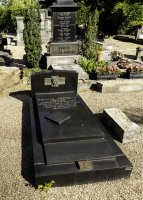Description
Fernand Mertens was born in Leuven on 29 February 1872. He attended primary school and then the École des Frères de la Charité in this old university city. At the Leuven Conservatory, he won first prize in solfeggio at the age of 12, and first prize in the viola category at the age of 14. In 1890, he joined the 13th Regiment of the 2nd Namur Battalion. On 12 October 1890, he became cornet cadet in the military band in Antwerp, where he continued to improve his musical skills. On 11 November 1897, he married Clémence van Kerkhoven. Mertens remained in Namur as a serviceman in the 13th regiment.
In 1894, the young Mertens won second prize in the international composers' competition in Reims, and in 1896, took first prize in Barcelona. In 1897, he joined the Luxembourg military band as a bassoonist. In 1899, he was appointed music director of the "Diddelenger Stadmusek" band, and in 1905, music director of the Hollerich, Luxembourg-Gare-Cessange municipal band. He gave music lessons to members of the E. Mercier champagne-factory band in Luxembourg-Gare. In 1906, he was appointed solfeggio professor at the Luxembourg City Conservatoire, a position he held until 1937. In 1918, he was awarded the title of Maître de chapelle de la Cour (Court Music Director). To further his musical skills throughout his career, he undertook regular study tours to Ghent, Paris, Beirut, Salzburg, Vienna, Zurich and Wiesbaden. He regularly contributed to the journal "Echo des Concours", published by Andrieu Frères-Paris. Mertens composed cantatas to mark the inaugurations of the Monument of Remembrance and the monument to Michel Rodange.
Mertens passed away in Bettembourg on 9 July 1957 and was interred at Notre-Dame Cemetery on 11 July 1957 to the sound of processional marches of his own composition.
His religious processional marches established a new tradition in the local liturgy.
Some of his most well-known compositions include:
"La Sonnerie Nationale"; Marches:
"Grande-Duchesse Charlotte", "Prince Jean", "Princesse Joséphine-Charlotte", "Lëtzebuerger-Zaldote-Marsch", "Ettelbruck, Porte des Ardennes", "Liberatiounsmarsch", "Salut à Differdange", "Lëtzebuerg Rousestad"; Polkas: "Salut à Dudelange", "Polka des masques", "Polka des bébés".
He composed the music for the operetta "D'Wonner vu Spéisbech", for the farce "De Stärksten", and for two literary works by Batty Weber. He also composed music for poems and plays written by Willy Goergen, Max Goergen, Albert Elsen, Nikolaus Hein and Nikolaus Welter. Finally, he also composed "Messe en l'honneur de Notre-Dame de Luxembourg".
Fernand Mertens was the recipient of Luxembourg's National Order of Merit, and the Gold and Silver medals of the French "Arts, Sciences et Lettres" academic society.
Download



















